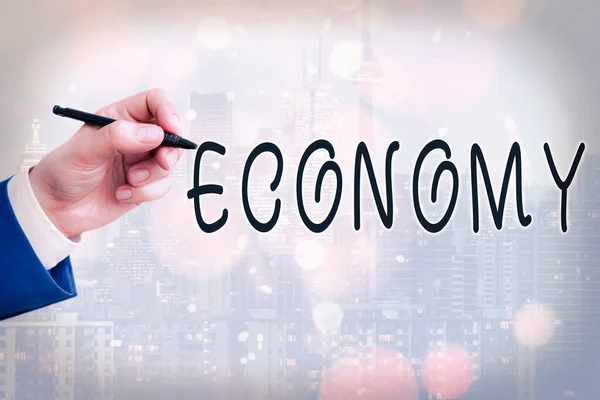Navigating Economic Challenges: Inflation, Business Opportunities, and the Global Market
In recent years, inflation, economic crises, and international competition have shaped new trends in global markets and consumer spending. As inflation rates rise worldwide, consumers, entrepreneurs, and businesses are constantly adjusting to remain competitive, resilient, and financially stable. Navigating these economic challenges requires insight into consumer behaviors, smart business strategies, and an understanding of how global market forces affect everything from spending habits to the success of business ventures.
This blog will explore the implications of inflation on global spending trends, how entrepreneurs can identify and evaluate business opportunities in uncertain economic conditions, and the critical balance of personal life and business growth for global entrepreneurs.
How Inflation Impacts Global Spending Trends
As inflation continues to drive up the cost of goods and services, it directly impacts consumer spending trends worldwide. Here’s how it’s affecting spending behavior:
- Shift to Essentials: With reduced purchasing power, consumers are prioritizing essentials such as groceries, healthcare, and household utilities over discretionary items like luxury goods or entertainment. This shift affects sectors that rely on non-essential spending, like travel, fashion, and technology.
- Preference for Private Labels and Discounts: In response to rising prices, many consumers opt for private label or store brands, which often provide a balance between quality and affordability. Demand for discounts, loyalty programs, and price comparison tools has surged as people seek out ways to reduce costs.
- Growth of Second-Hand and Sharing Economies: Inflation has also sparked growth in second-hand shopping and the sharing economy. Platforms that facilitate the buying and selling of used goods or offer subscription-based services are becoming more popular as people seek to economize.
The takeaway for businesses: understanding consumer needs and adapting to cost-conscious demands can lead to lasting customer loyalty. Offering discounts, flexible payment plans, or bulk options can also help retain consumers who are feeling the pinch of inflation.
Opportunities Amid Economic Crises
Economic crises like inflation and global market fluctuations can create unique opportunities for entrepreneurs who can quickly adapt and find emerging needs within their industries. Entrepreneurs can capitalize on these opportunities by focusing on affordability, sustainability, and digital solutions, which are becoming crucial in today’s markets.
- Affordable and Essential Goods: Businesses that focus on delivering affordable alternatives to premium brands, especially for essential items, can capture the attention of value-conscious consumers. Opportunities in sectors like affordable healthcare, everyday consumables, and cost-effective technology are growing in demand.
- Sustainable Solutions: As people look for long-term value, there’s a rising interest in products that are durable, reusable, or environmentally sustainable. Entrepreneurs who provide solutions that minimize waste, offer reusable products, or focus on sustainable practices can meet the demand of a more mindful consumer base.
- Technology and Digital Services: Inflation has accelerated digital transformation as consumers and businesses seek ways to streamline processes and cut costs. Entrepreneurs can leverage digital platforms to offer price-comparison tools, financial management apps, and even virtual services that reduce the need for physical travel or product costs.

Evaluating Business Opportunities in Challenging Times
For entrepreneurs and investors, choosing the right opportunities during an economic downturn involves careful evaluation and strategic decision-making. Here are some critical factors to consider:
- Market Demand and Trends: Look for sectors with stable or increasing demand. Essentials such as healthcare, energy, and digital services often remain steady in challenging times, as consumers prioritize these needs.
- Cost Efficiency and Scalability: Evaluate opportunities that offer a low barrier to entry and can scale efficiently. For example, a business that provides online services or digital products can scale with fewer overhead costs, making it a viable option when other resources are scarce.
- Potential for Innovation: Innovative solutions often attract consumer interest and can thrive even when the economy is unstable. Businesses that provide unique products or services—especially in areas like sustainability or digital convenience—have a competitive edge.
Balancing Personal Life and Business Growth as a Global Entrepreneur
For many entrepreneurs, especially those navigating global markets, balancing personal life with business growth can be particularly challenging but is essential for long-term success. The following strategies can help global entrepreneurs manage their work and personal lives effectively:
- Establish Clear Boundaries: Defining specific work hours and personal time can help entrepreneurs prevent burnout and maintain fulfilling relationships with family and friends. Communicating these boundaries to team members and clients ensures that work does not infringe on personal life.
- Create a Flexible Work Schedule: A flexible schedule allows entrepreneurs to adapt to the demands of international time zones and travel requirements. Aligning work hours with peak productivity times and incorporating regular breaks for family and self-care is crucial.
- Leverage Technology to Streamline Operations: Utilizing digital tools to automate tasks and communicate with global teams reduces the time spent on routine tasks and allows entrepreneurs to focus on strategic goals. Tools like project management software and video conferencing can minimize the need for travel and streamline workflows.
In navigating the intersection of personal and professional life, resilience and flexibility are key. Entrepreneurs who prioritize work-life balance not only improve their well-being but also build a sustainable foundation for long-term growth.
The Path Forward: Adapting to a Shifting Global Economy
Inflation and economic challenges are not without their opportunities for businesses and entrepreneurs. By adapting to the evolving needs of consumers, focusing on innovation, and staying mindful of personal well-being, global entrepreneurs can thrive even in uncertain times. The ability to pivot, leverage technology, and offer value to price-sensitive consumers are qualities that differentiate resilient businesses from those that struggle to keep up.
In a world of continuous change, entrepreneurs and businesses that embrace adaptability, prioritize value-driven solutions, and maintain a balanced approach to growth will not only navigate economic challenges successfully but emerge stronger and more resilient.